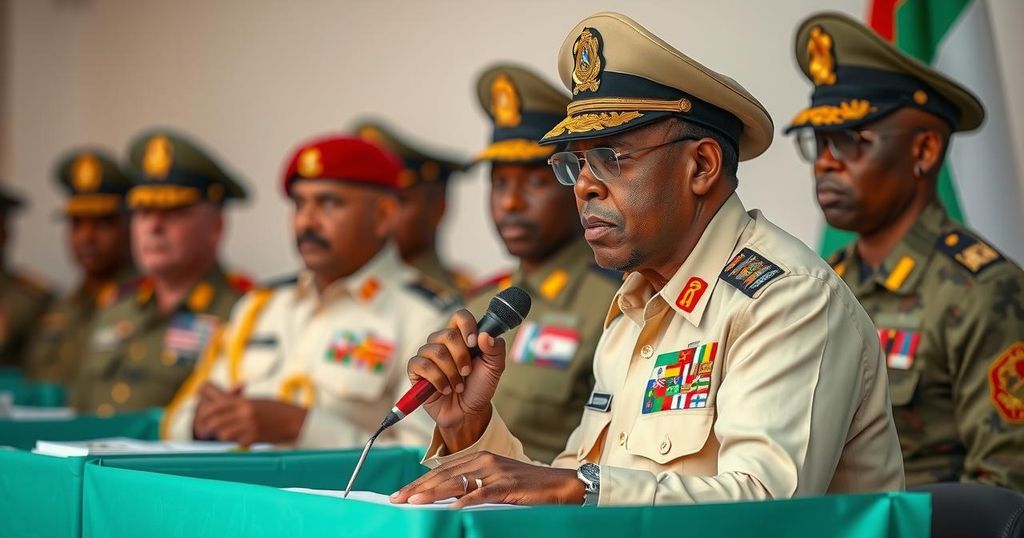Chad Votes in General Election Amid Call for Boycott and Low Turnout

Chad held a general election aimed at ending military rule, but turnout was low, at around 38%. Opposition parties called for a boycott, leading to widespread voter apathy. President Mahamat Idriss Deby encouraged participation, but many citizens expressed doubts about the election’s integrity. Concerns were raised over potential electoral fraud as security challenges persist in the region.
On Sunday, Chad held a general election aimed at transitioning away from three years of military rule, yet turnout was disappointingly low. According to reports from the elections management agency, ANGE, participation was around 38 percent as opposition groups urged the electorate to boycott the process, claiming results were predetermined. In contrast, President Mahamat Idriss Deby Itno promoted an inclusive vote, asserting its historical significance. Several citizens expressed skepticism about the electoral integrity, with some considering voting futile amidst prevailing political dissatisfaction.
Election officials attributed low voter participation in certain areas to chilly weather. However, opposition leader Succes Masra contended that a significant number of voters stayed home following the opposition’s call for boycott. With the majority of Chadians disenchanted with the electoral process, it seemed favorable for President Deby’s allied candidates. Observers noticed that many voters, like construction worker Herve Natouingan, felt casting a ballot was pointless due to perceived lack of democracy in Chad.
Meanwhile, the turnout statistics reported by the government indicated higher participation rates among soldiers and nomads, with 72 percent and 54 percent, respectively. Nomads conversed about their dire conditions worsened by climate change, expressing their desire for elected officials to address their needs. The election continued despite electors raising concerns about missing ballots and potential fraud orchestrated by the ruling party.
This election occurs amidst regional security challenges, including persistent threats from Boko Haram, alongside accusations of Chad’s interference in Sudan’s ongoing conflicts. The government presented these elections as a critical step towards re-establishing democracy. Notably, President Deby ascended to power in 2021 following his father’s long-standing rule, further emphasizing the importance of this electoral process for Chad’s political future.
Chad has experienced significant political upheaval since the military took control in 2021 following the death of long-time ruler Idriss Deby. This election is viewed as a pivotal moment in the country’s transition back to democratic governance. Despite governmental assertions of the election’s importance, the widespread call for boycotts from opposition parties stems from skepticism about the integrity and fairness of the electoral process. Issues such as low turnout and allegations of voting fraud reflect deep-seated political apathy and disillusionment among the populace.
Chad’s recent general election highlights the ongoing struggle between governmental authority and public trust in the democratic process. The low voter turnout, emphasized by opposition calls for boycott, illustrates the profound disillusionment among citizens with the current political system. As the nation seeks to transition back to democracy, the effectiveness of these elections in genuinely representing the people’s will remains questionable, presenting significant challenges ahead for President Deby and the ruling party.
Original Source: www.khq.com







